As digital advertising continues to evolve, hoteliers must navigate increasingly complex ad scheduling challenges. Global travel audiences operate across multiple time zones, making it harder to ensure that ads appear at the right time for maximum engagement. With new advancements in automated bidding, time-based segmentation, and data-driven scheduling, hotels can no longer rely on a one-size-fits-all approach.
Additionally, seasonal trends, local business hours, and daylight saving time (DST) shifts further complicate ad scheduling, requiring a more dynamic and responsive strategy. Platforms like Google Ads and Microsoft Ads now offer sophisticated tools to optimize scheduling, but many hoteliers are still missing out on these advanced capabilities.
What Does It Mean for Hoteliers?
For hotels, improper ad scheduling can lead to wasted ad spend and missed booking opportunities. If ads aren’t running during peak browsing hours for target audiences in different time zones, the chances of securing direct bookings decrease.
For example, if a hotel in New York targets European travelers, running ads based on Eastern Time might mean they are displayed during off-hours in key European markets. Similarly, relying on static schedules without adapting to seasonal demand spikes or high-converting time slots results in lower campaign efficiency.
Hoteliers need to rethink their ad strategy to ensure that promotions, room availability, and special offers reach travelers when they are most likely to book.
How Can Hoteliers Act?
To stay ahead, hoteliers should take a data-driven and automated approach to ad scheduling. Here’s how:
-
Segment Campaigns by Time Zone
- Create separate ad campaigns for different regions to optimize scheduling and bidding strategies.
- Use region-specific data to identify peak booking times and adjust ad delivery accordingly.
-
Leverage Automated Bidding
- Utilize smart bidding strategies like Target ROAS (Return on Ad Spend) or Maximize Conversions to automatically adjust bids based on conversion probability.
- Set rules to increase or decrease bids during high and low booking periods.
-
Use Ad Scheduling Insights
- Analyze past performance data in Google Ads and Microsoft Ads to determine when travelers are most active.
- Schedule ads to appear during peak travel planning times in each market.
-
Apply Labels for Easy Adjustments
- Use labels in ad platforms to categorize campaigns by region, season, or promotion type.
- Easily adjust schedules for events, holidays, or promotional periods without reconfiguring each campaign manually.
-
Automate Adjustments with Scripts
- Implement Google Ads scripts to dynamically modify bids based on real-time performance.
- Set automated rules to increase visibility during high-converting time slots and reduce spend during low-traffic hours.
-
Stay Ahead of Daylight Saving Time Changes
- Keep a calendar of DST changes in key markets to prevent scheduling mismatches.
- Use automation tools to adjust ad schedules as time changes occur.
-
Reallocate Budget Based on Performance
- Instead of distributing budgets evenly across all time zones, allocate more funds to regions with higher booking rates.
- Monitor real-time analytics and shift ad spend toward high-performing time slots.
Effective ad scheduling is no longer a simple checkbox in a campaign setup—it’s a critical factor in maximizing hotel bookings and ROI. By leveraging data-driven insights, automation, and time-zone-specific strategies, hoteliers can ensure their ads reach the right audience at the right time.
Now is the time to refine your ad strategy, embrace automation, and gain an edge in the competitive hospitality market. Optimize your ad scheduling today to turn timing into your biggest booking advantage!








